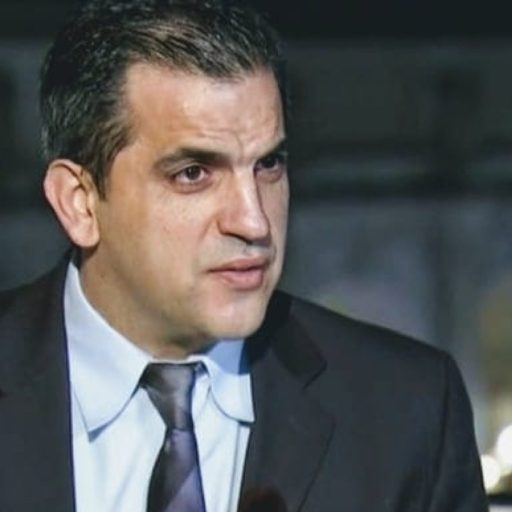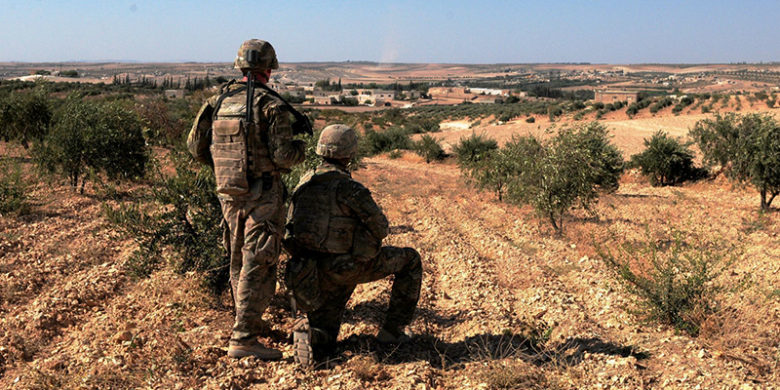“Washington should be careful not to push Lebanon to the brink, as Hezbollah would retaliate if its survival is at stake,” said Joe Macaron, a resident fellow at the Arab Center in Washington. “In the current status quo, the most effective way to restrain Hezbollah remains within the intricate parameters of the Lebanese political system,” he said. You can read the full article here.
Joe Macaron
Publications
The Mutually Connected Fronts between Israel and Iran
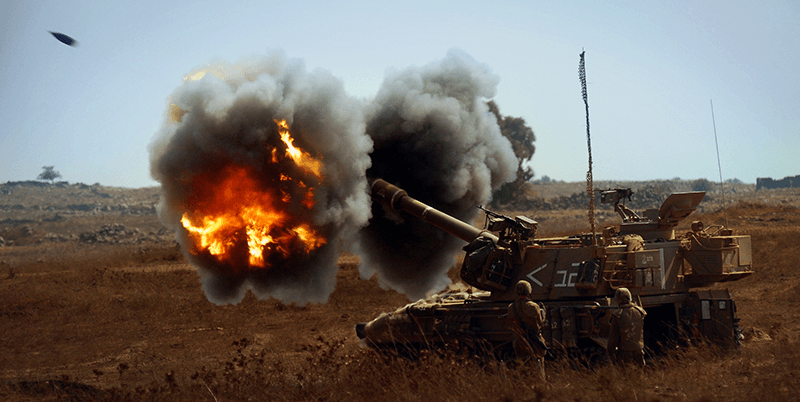
While a direct confrontation between Israel and Iran is unlikely in the foreseeable future, the two adversaries share three potential war fronts in Lebanon, Syria, and the Gaza Strip. As tensions increase between Israel and Iran, there is speculation as to which front might witness the next confrontation. Importantly, all these fronts are mutually connected in terms of military strategy and political calculations. Click here for my latest analysis.
Op-Ed
Trump’s Middle East strategy is bound to fail
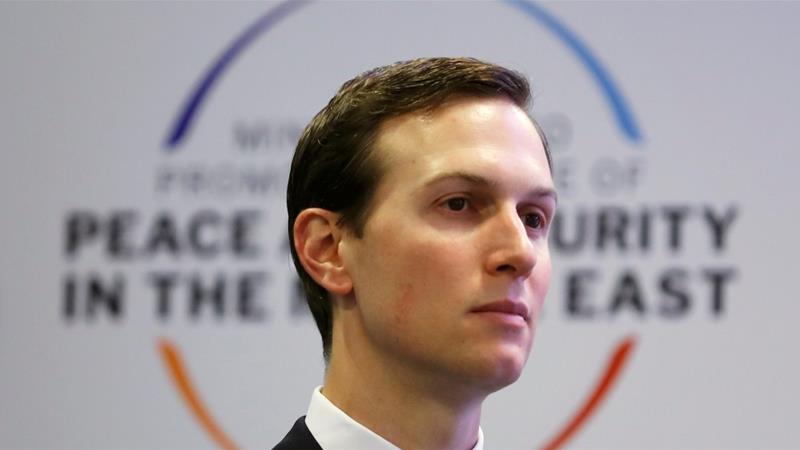
The Trump administration’s strategy of linking a flawed Israeli-Palestinian deal to an Arab-Israeli alliance to deter Iran might undermine these two US objectives in the Middle East and might even backfire against US allies and interests in the region. Click here to read my latest op-ed.
Publications
The Trump Administration Is Buying Time in Syria
In the past two months, US officials have been baffled by how to spin President Donald Trump’s hast decision last December to withdraw US forces from Syria. Once again, they were unable to come up with an American strategy. Across the US federal government, the advocates for staying in Syria have been buying time from Trump over the last two years to maintain US presence in the war-torn country. Click here for my latest analysis.
Print/online media quotations
Quoted by MEE on Iran’s foreign minister short-lived resignation
Joe Macaron, a fellow at the Arab Center Washington DC, said announcing a resignation on Instagram is “unconventional and unprecedented” for an Iranian official. “It seems… Zarif submitted his resignation letter and went on social media before either Rouhani and Khamenei [can] react to this resignation, which might mean that Zarif is locked in a fight with hardliners on what directions should the Iranian foreign policy take amidst growing US pressure on its economy,” Macaron told MEE via email. “We are yet to know the full story behind this resignation, but it seems to reflect heated debates in Tehran around the foreign policy challenges facing the Iranian regime.” Click here to read the full article.
Events
Mr. Joe Macaron “The current US administration has no clear understanding of the Middle East.”
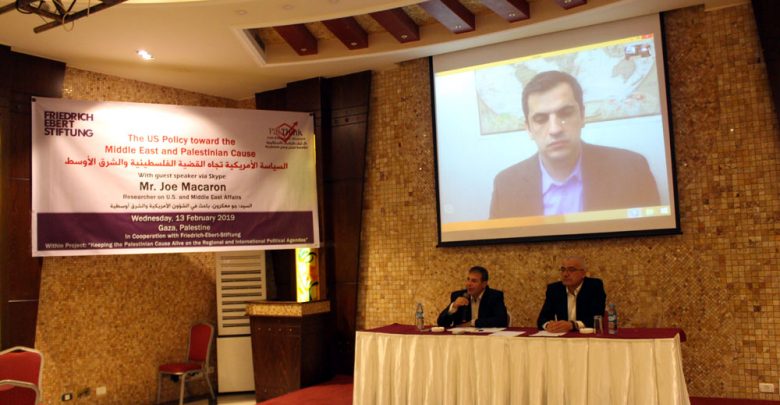
I had the pleasure to speak via Skype at the Pal-Think for Strategic Studies, an independent think tank based in Gaza, about “the US Policy Towards the Middle East and Palestinian Cause” in partnership with Friedrich-Ebert-Stiftung. The session took place on Wednesday, February 13, 2019, at the light-house Hotel, Gaza City. Click here to read the summary of the event.
Publications
Lebanon’s New Government: No Need for Washington to Panic
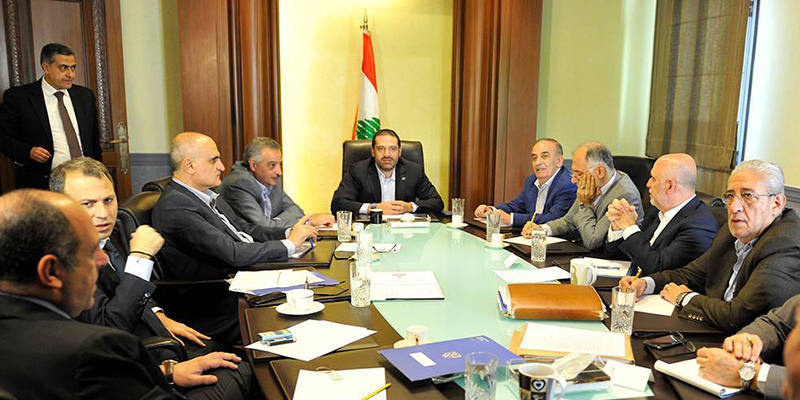
After 257 days of political impasse, Lebanon’s 75th government since independence was formed on January 31. The reaction in Washington and in the American media has been that Hezbollah now controls a majority in the Lebanese government and thus the country. However, putting this development in context is crucial to understanding how and why the cabinet was formed and, most importantly, what challenges it will face moving forward. Click here to read my latest policy analysis.
Publications
The Eastern Mediterranean Gas Forum Reinforces Current Regional Dynamics

On January 14, the Eastern Mediterranean Gas Forum (EMGF) was inaugurated in Cairo, triggering the region’s official transition from oil dependence to the era of gas production. The ongoing geopolitical and economic calculations of the Eastern Mediterranean gas discovery in 2009 have shaped new alliances and rekindled old enmities. However, the initial hope that this offshore gas discovery would lead to an inclusive regional cooperation or integration has waned; indeed, the EMGF alliance seems to mirror the current regional status quo. Click here to read my latest policy analysis.
Publications
The Manbij Attack Exposes the Vulnerabilities of US Policy in Syria
The Manbij attack exposes the crisis of US policy in Syria overall. The pillars of the Trump Administration’s policy in the country have been to defeat IS, prevent a Turkish-Kurdish confrontation, deny Iran a foothold in Syria, and veto a Russian-led political process that contradicts US interests. All these objectives are currently at risk. Moving forward, the White House will be tempted to retaliate against the Islamic State as a show of force, which will deepen US involvement in the Syrian conflict in the short term. It is difficult, however, to see how a US withdrawal could be imminent or accomplished without a deal with Turkey; this seems unlikely in the foreseeable future as both sides have irreconcilable interests in northern Syria. While the American decision to withdraw
Op-Ed
What three Cairo speeches tell us about US foreign policy
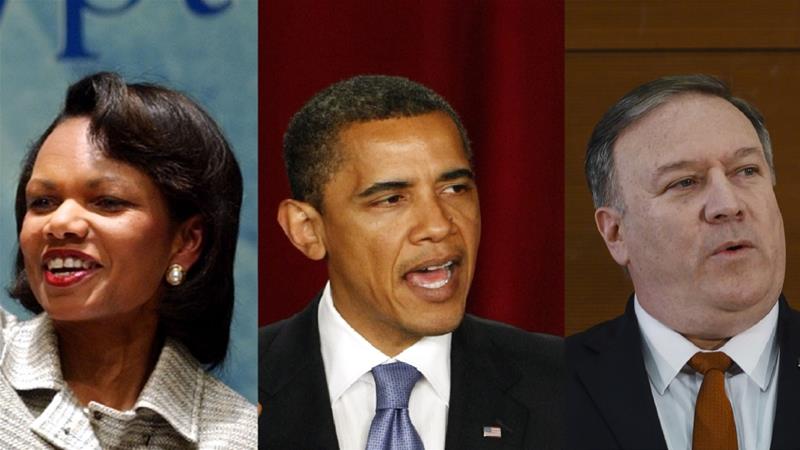
Over the past two decades, three high-ranking US officials have gone to Cairo to lay out their vision for the US foreign policy in the Middle East. Each time, they have criticized their predecessors and each time nothing good has come out of it. Click here to read my latest op-ed.
